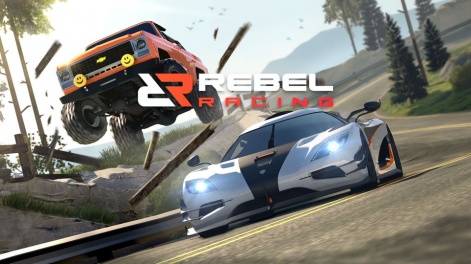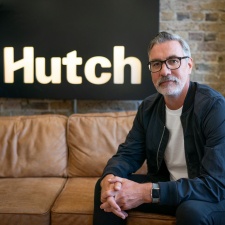It's near-impossible to go a week without a company being acquired in the games industry.
The conversation and decision-making that leads to an acquisition doesn't take place overnight, however.
It's something that requires numerous pieces to fall into place before the dotted lines are signed.
But when a deal is announced, few of these inner workings are revealed.
So, to shed some light on what goes on behind-the-scenes, PocketGamer.biz is speaking to a variety of companies as part of our Done Deal series, which will look into the strategy, long-term goals and the ongoing hurdles of making an acquisition stick.
This week, we discuss Modern Times Group's acquisition of Hutch in December 2020 for $375 million, with the latter's CEO and co-founder Shaun Rutland.
PocketGamer.biz: Can you explain where the idea for the acquisition of Hutch came from?
Shaun Rutland: The acquisition of Hutch has been a long process of meeting with prospective acquirers over many years, but it was a challenge to find one that would enable us to maintain the vision behind the company and be trusted to keep our own momentum.
We wanted a buyer that could help us accelerate our ambitions, but we also balanced this with the desire to find a company that was a good fit for everything that informs our direction as a developer.Shaun Rutland
We knew that Hutch as a business simply didn’t fit into a rigid structure of approvals and sign-offs, so we had to retain what we were as a first priority.
We were looking for a home that believed in our values, supported us in our objectives and would be able to offer significant value to the whole team behind Hutch.
We found that in Modern Times Group (MTG), and it quickly became clear they were the right choice for us.
What were the main goals of this acquisition and how long did it take to go through?
It was incredibly important to us that Hutch was able to retain our identity and specialisation in the market as a mobile-first automotive game developer. Any partner we considered had to be on board with this direction.
We wanted a buyer that could help us accelerate our ambitions, but we also balanced this with the desire to find a company that was a good fit for everything that informs our direction as a developer.
During meetings with interested buyers, we asked ourselves: "Is this a company that our team will be proud to work for, and will they still feel inspired in their work? What about their ability to grow in their career; can the buyer still offer them the opportunity to achieve their professional dreams?".
MTG not only met all of these requirements, but the drive and sense of purpose behind their business were really exciting for us. It was clear at an early stage that they would be able to help us reach our longer-term goals, but also that Hutch would remain the company it was.
It was a six-month process in all, which during a global pandemic felt really efficient.
How big of a part do you think Hutch's IP - F1 Manager, Top Drives, Rebel Racing - played?
It was certainly a big part, with Hutch owning three of the top 10 racing games on mobile.
This made the company a very attractive proposition to a large variety of prospective buyers, however the value alignment was just as - if not more - important to the result.
How has this acquisition benefitted Hutch going forward?
It's still very early on in the process, but thanks to the ambition of the team at MTG, they are providing us with renewed impetus. We are already having some exciting conversations and gaining extremely valuable insights from the other game studios in the group, GamingCo.
Working with the GamingCo family provides great opportunities for additional support through fellow studios, such as insights within live ops, tooling, operations, performance marketing and more that we simply couldn’t access previously.
It's the start of a significant acceleration in how we operate, and we look forward to seeing how it helps us expand our process.

Ahead of the acquisition, we were already going through an expansion plan, with around 40 new team members joining Hutch throughout 2020, despite the pandemic. This is set to continue as we move ahead with strengthening the capability of Hutch to become the number one developer and publisher of racing games on mobile.
Did you encounter any major hurdles during the process?
The pandemic was a major challenge to the acquisition process that we had to do our best to work around. After the last 12 months, it's all too easy to forget the impact of a face-to-face meeting, as well as how much harder it is to make a strong impression over a video call.
But with regards to the process of finding a buyer itself, there was sometimes a disconnect between what we understood versus the understanding of a prospective acquirer. Some that we’d been talking to for a number of years found it difficult to fully understand the growth that Hutch had experienced during this time, creating a disconnect in perceived value.
There were others that simply didn’t believe in automotive titles on mobile, and no matter what we achieved there was an impression that we somehow were holding ourselves back. That was a major sticking point for us; we weren’t there to pitch them the value of racing. We didn’t need to, we had our own results and history as a developer to prove it.
That was why after meeting with MTG it became apparent they were right for us. The company not only understood and believed in what we were doing but also how we wanted to escalate our vision. They didn’t need to have the ethos of Hutch’s business model justified, it was fully behind it.
How has Hutch's strategy changed under new ownership?
There aren’t any plans to change our strategy and we are going to continue as an independent entity within the group. We’ll have the same leadership team who will continue to push forward our focus on creating and expanding our diverse range of automotive experiences for mobile.
That's a major advantage of MTG - the company's approach is to encourage independence, with studios enjoying a decentralised system of management that lets us stay true to our foundations.
MTG offers access to senior talent and strategic advice in the place of control, giving us the opportunity to learn more in areas such as live ops, marketing and product development from experts in the field.
You recently spoke about how you want Hutch to get to the "number one in racing". How do you intend to achieve this, and do you have a set timeline for when you think you can make this a reality?
The acquisition process is an impossibly demanding task, and it's very easy to get lost in the excitement and energy of it.Shaun Rutland
We are very committed to that milestone and we see our ability to achieve it as a combination of two important factors:
- The first is to continue to support our current titles, alongside enhancing our investment in them. We will continue to push our games, such as Top Drives, F1 Manager and Rebel Racing to new heights.
- The second factor is to continue developing and launching new games that are positioned to meet the diverse needs of the global mobile racing market.
Do you think acquisitions in the mobile space will continue at the rate they did in 2020?
Absolutely, even after an unprecedented year of acquisitions in 2020, the breadth of profitable and strong mobile studios is vast. In Q2 of 2020 alone, spending on mobile games hit over $19 billion and the revenue share on mobile purchases continues to be dominated by games.
There is such a significant opportunity for buyers in the industry to support this constantly growing success story, so we are confident it will continue unabated for the foreseeable future.
Was there anything that has happened since Hutch's acquisition that you would change?
I really wish I had taken more time off. The acquisition process is an impossibly demanding task, and it's very easy to get lost in the excitement and energy of it, causing you to completely forget your own physical and mental limits.
It's such a big moment that you keep moving your own personal timeline, pushing back rest in order to maintain the momentum. It's a situation that always leaves you with more work to do, so trying to grind your way through it can feel pretty daunting.
Are mergers and acquisitions a good thing for the games industry as a whole?
It's extremely beneficial for the industry and has been a major driver for the success we see in space today. It means that there is a significant investment in innovative ideas and creative people, which gives the industry a major boost in its output, preventing it from stagnating.
It also provides an opportunity to redistribute the capital that comes into the games industry, with acquirers offering share option plans that enable companies to reward the people within the business that have been the foundation of its success.
Not only that, but it’s also in the services of the players themselves, as investment enables the creation of a wider variety of games, and simply put, more games in general to enjoy.
What advice would you give to companies that are either looking to make an acquisition or looking to be acquired? What are the positives for both parties?
Mergers and acquisitions fail when people focus on money - and money alone.
It’s easy to feel pressured into when you should sell your business, but you should have an idea when the best time to sell is.Shaun Rutland
While an important part, the focus must always be to find a home for your company that ensures the continued growth and support of your team.
There are very few success stories to be found off the back of acquisitions that were led by money first and foremost, and it's a rapid way for a company to crash out when the finer details are ignored in favour of a big sum.
It’s also easy to feel pressured into when you should sell your business, particularly when it's clear you are growing, but you should have an idea in your head of when the best time to sell is. Preparing for and managing investment can be a huge distraction, with lots of pressure, so you need to know when the time is right.
Most importantly, always understand that value goes beyond the final figure. You must ensure that whoever wants to acquire your business understands and appreciates the ideology that built your company.
To hear about Modern Times Group's perspective on the deal, we previously spoke to MTG EVP of esports and gaming Arnd Benninghoff as part of our Jobs in Games series.






















